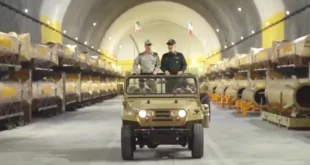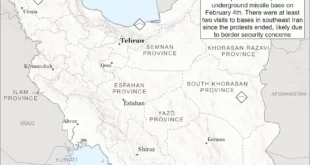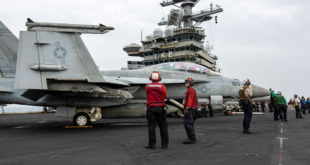VIENNA (Reuters) — The International Atomic Energy Agency (IAEA) is reviewing its technical aid projects in Iran to see if any might violate a new UN resolution imposing sanctions on Tehran over concerns it is secretly trying to build atom bombs.
Diplomats said the IAEA’s 35-nation board of governors could convene a special session, as early as the second half of January, but a decision would await the outcome of the review by experts in the UN nuclear watchdog’s secretariat.
The board’s next scheduled meeting is March 5-9. But some Western powers want an early session, an IAEA diplomat said.
Developing nations on the board oppose this as they would see it as a Western gambit to apply restrictive interpretations to the resolution’s references to technical aid, a precedent they fear would damage their own nuclear-energy aspirations.
The UN Security Council voted on December 23 to ban transfers to Iran of nuclear materials or know-how of possible use in enrichment, fuel-reprocessing or heavy-water reactors. Each process can yield energy for electricity or explosives.
The resolution also prohibits IAEA technical aid related to enrichment, fuel reprocessing or heavy-water activity, while exempting projects that are for “food, agricultural, medical, safety or other humanitarian purposes”.
IAEA diplomats said the agency was not providing technical aid in the banned sectors to Iran or any other member state — reflecting its covenant to both foster peaceful atomic power and deter diversions to bombmaking through regular inspections.
But in a December 27 letter to board members, IAEA chief Mohammad Al Baradei said the council had “decided to restrict the scope” of nuclear technical aid to Iran and the board would need to “consider the relevant obligations” for the agency.
Pending the IAEA secretariat’s evaluation, Baradei said he would ensure that existing technical aid would be “limited to activities authorised” by the Security Council.
Of the 20-odd items of technical aid Iran has received since 1997, most involve work in radiopharmaceuticals, radioactive waste management, radioisotopes for medical care, and regulatory infrastructure for nuclear safety.
But at least one project dating to 2001, on the “feasibility of upgrading a research reactor”, could well be killed off by the sanctions resolution, one senior IAEA diplomat said.
“It’s possible the board will have to convene specially quite soon to establish firmly that all projects will indeed pass muster under this resolution,” said another IAEA diplomat.
At the last regular board meeting in November, Iran’s bid for IAEA safety expertise for a heavy-water reactor was put on indefinite hold after days of haggling between developing and Western states, who originally wanted more projects slashed too.
“The catch now, under sanctions, is how do we interpret the technical aid projects designated as ‘humanitarian’? Those who want to put the squeeze on Iran can find ways to do that,” said an ambassador for a major developing nation on the IAEA board.
“But Baradei has things under control. So a special board will only raise temperatures, not cool them down which we need so at the end of the day we get a return to negotiations on a diplomatic solution [on Iran],” he said.
Iran, the world’s No. 4 oil exporter, says it wants nuclear fuel only for power plants, not for bombs as the United States and European Union allies — who sponsored sanctions — suspect.
But Iran bred mistrust, spawning sanctions, by hiding nuclear research from the IAEA for 18 years, failing to satisfy agency investigators since that its goals are wholly peaceful, and ignoring a Security Council demand in July to halt enrichment.Â
 Eurasia Press & News
Eurasia Press & News



